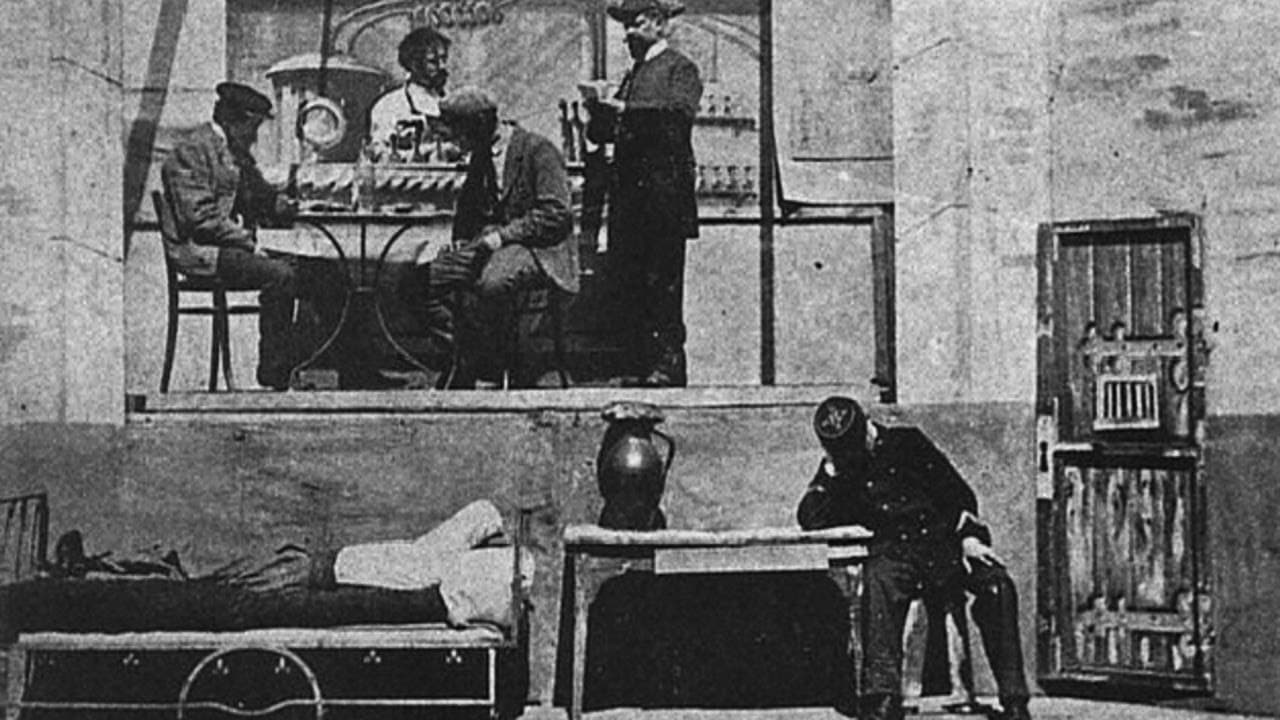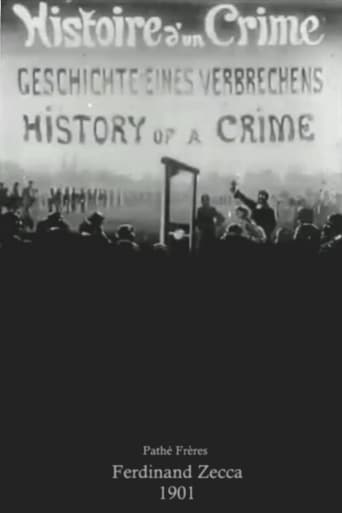

Instead, you get a movie that's enjoyable enough, but leaves you feeling like it could have been much, much more.
... View MoreThe film makes a home in your brain and the only cure is to see it again.
... View MoreI wanted to like it more than I actually did... But much of the humor totally escaped me and I walked out only mildly impressed.
... View MoreThere are moments that feel comical, some horrific, and some downright inspiring but the tonal shifts hardly matter as the end results come to a film that's perfect for this time.
... View MoreThis film was French directer Ferdinand Zecca's first true masterpiece. It is a very impressive film for 1901 for several reasons. First of all, it was made before Méliès's "A Trip to the Moon" which is considered one of the most important early films because of its length and story-telling. However, "History of a Crime" is proof that before Méliès's film other filmmakers were also trying to make films with a plot. While the plot here is simple, it is told in seven different scenes and there is some gore and violence too!The story here is about a man murdering a guy and robbing his safe. He's caught though and condemned to death. The highlight in the whole film is the jail cell scene because here we actually get some background about the robber's past. The ending where the man's head is chopped off via guillotine has some interest. Supposedly, I've read that they'd stop playing the film and let all the women and children out of the theater before the guy's head came off!Extremely ground-breaking for 1901. Anyone interested in the history of movies should see it.
... View MoreFerdinand Zecca's "History of a Crime" is actually a good example of a film where it is really difficult to understand the action. You get glimpses of it like the early safe-cracker scene or the execution in the end, but most of the stuff in-between stays a mystery. Of course, they did not have intertitles or sound yet 115 years ago, but still I wish they could have made this story easier to understand. Zecca was among France silent film pioneers as well, even if he never reached the popularity of Méliès and Lumière. His film here runs for 5 minutes which is pretty long for that era already and yet there are still longer films out there. All in all, not among the best early silent movies. Not recommended.
... View MoreA man is arrested for a crime and, while he awaits his judgement in his prison cell, he recalls how he came to this point. Comparatively ambitious this little film from Pathé in France in terms of narrative as it takes several scenes to tell the story and also has a flashback sequence where we get an element of back story. At the time most stories were a lot simpler than this so praise to it for that. It is very much a morality tale with no real complexity or debate but to moan about this would be splitting hairs.Technically you can see the makers playing with the media trying out some things. Most notably is the dream sequence. It does look clunky inset in part of the screen but it is clever and ambitious at this point even if it isn't totally successful. They also try out the dissolve to join scenes a device that they don't use very well and understandably gave up on after this because it is a bit messy. The use of a backdrop instead of depth sees them forget the shadows as well but this was formative times and it is interesting to see these things in play.
... View MoreAn early attempt by Zecca, Pathe's leading director in this period, at scene changes. All of them are done by fade. This technique would be abandoned, resulting in the standard French look through the 1920s, most notably in Louis Feuillade's movies, in which the camera sits in one location. The result is a much more subjective camera than the typical American style.
... View More